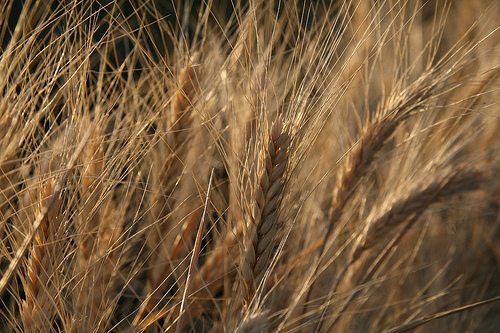

Economy
Climate change could cut crop production by 18%
Climate change is set to have uncertain effects on the world’s agriculture system, and could lead to anywhere between an 18% decline in production and a 3% increase, according to research. The study calls for carefully planned adaptation strategies to anticipate changes.
The study, from the International Institute for Applied Systems Analysis, has been published in the journal Environmental Research Letters. It argues that without careful planning for uncertain climate change impacts, the chances of getting agriculture adaption strategies wrong are high.
The research took a global perspective and covered nine different climate scenarios, 18 crops and four crop management systems. In particular it focuses on “transformations”, investment-intensive and not easily reversible adaptations, like building new water management infrastructure for irrigation.
“There is a lot of uncertainty in how climate change will impact agriculture, and what adaptations will be needed,” according to David Leclére, an IIASA Ecosystems Services and Management researcher who led the study.
“Our new study is the first to examine at a global scale whether the adaptations required from agriculture systems are in the transformational range, and whether these transformations are robust across plausible scenarios.”
He added, “By looking at where, when, why and which transformations are required, but also in how many scenarios, it lays the groundwork for countries to better plan for the impacts of climate change.”
The findings suggest that the impacts of crop yields, as measured in calories, from changes in the climate, such as increased temperature, changing precipitation levels and increased carbon atmospheric concentration, could range from an 18% decline to a 3% increase by 2050.
Pressure on water resources and the associated impacts on food production were also highlighted in the research. The study notes that in large parts of the world increases in irrigations larger than 25% may be required. However, where this will need to take place is described as “extremely sensitive” depending on the choice of climate model.
Photo: Parker Knight via Flickr
Further reading:
Tackling food waste on World Food Day – infographic
World needs to sustainably produce 70% more food by 2050
World Food Day focuses on creating a sustainable food system
Salt degradation risking food security, says UN study
Grocery sector launches campaign to tackle household food waste


 Environment12 months ago
Environment12 months agoAre Polymer Banknotes: an Eco-Friendly Trend or a Groundswell?

 Features11 months ago
Features11 months agoEco-Friendly Cryptocurrencies: Sustainable Investment Choices

 Features12 months ago
Features12 months agoEco-Friendly Crypto Traders Must Find the Right Exchange

 Energy11 months ago
Energy11 months agoThe Growing Role of Solar Panels in Ireland’s Energy Future





























